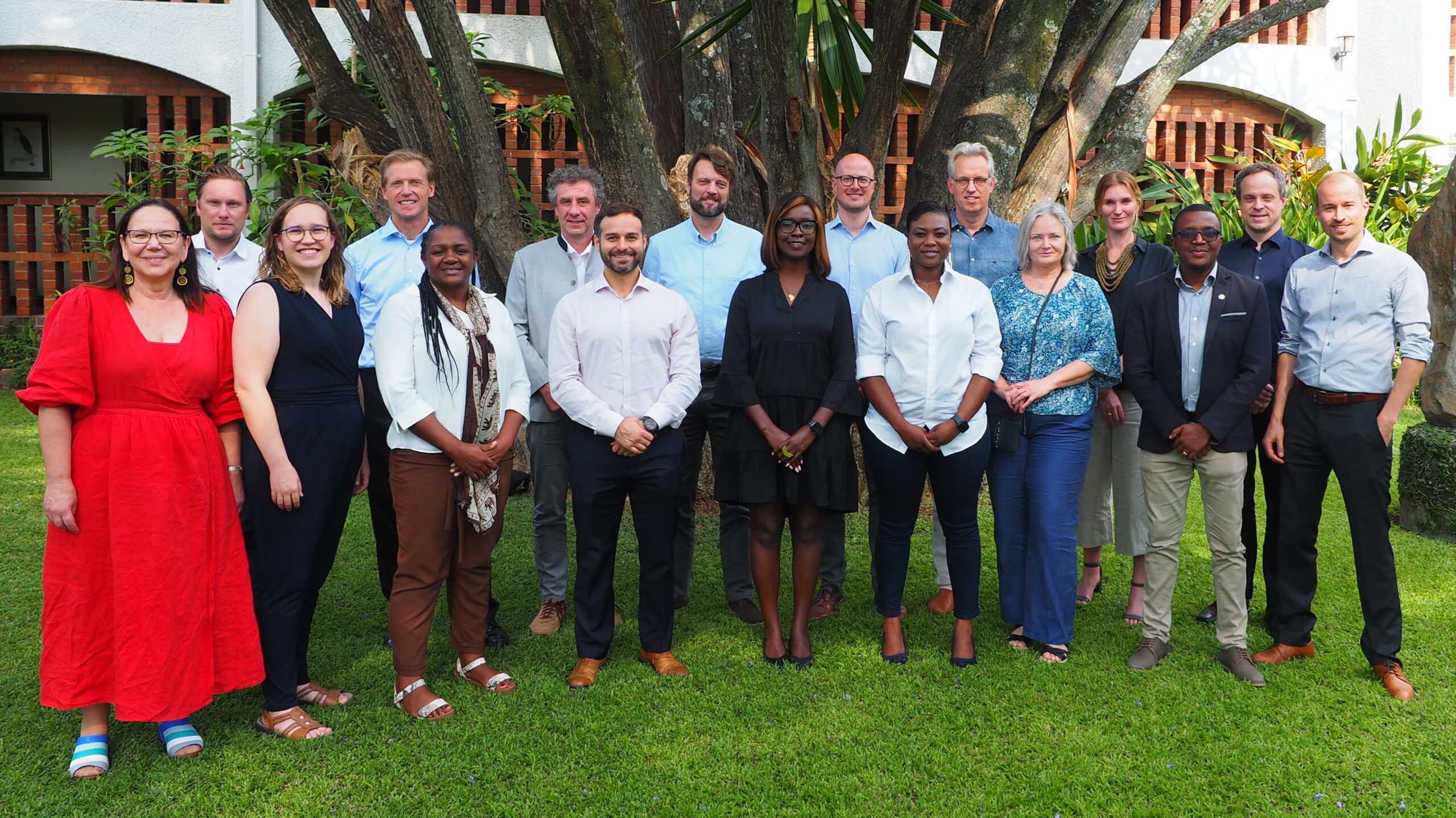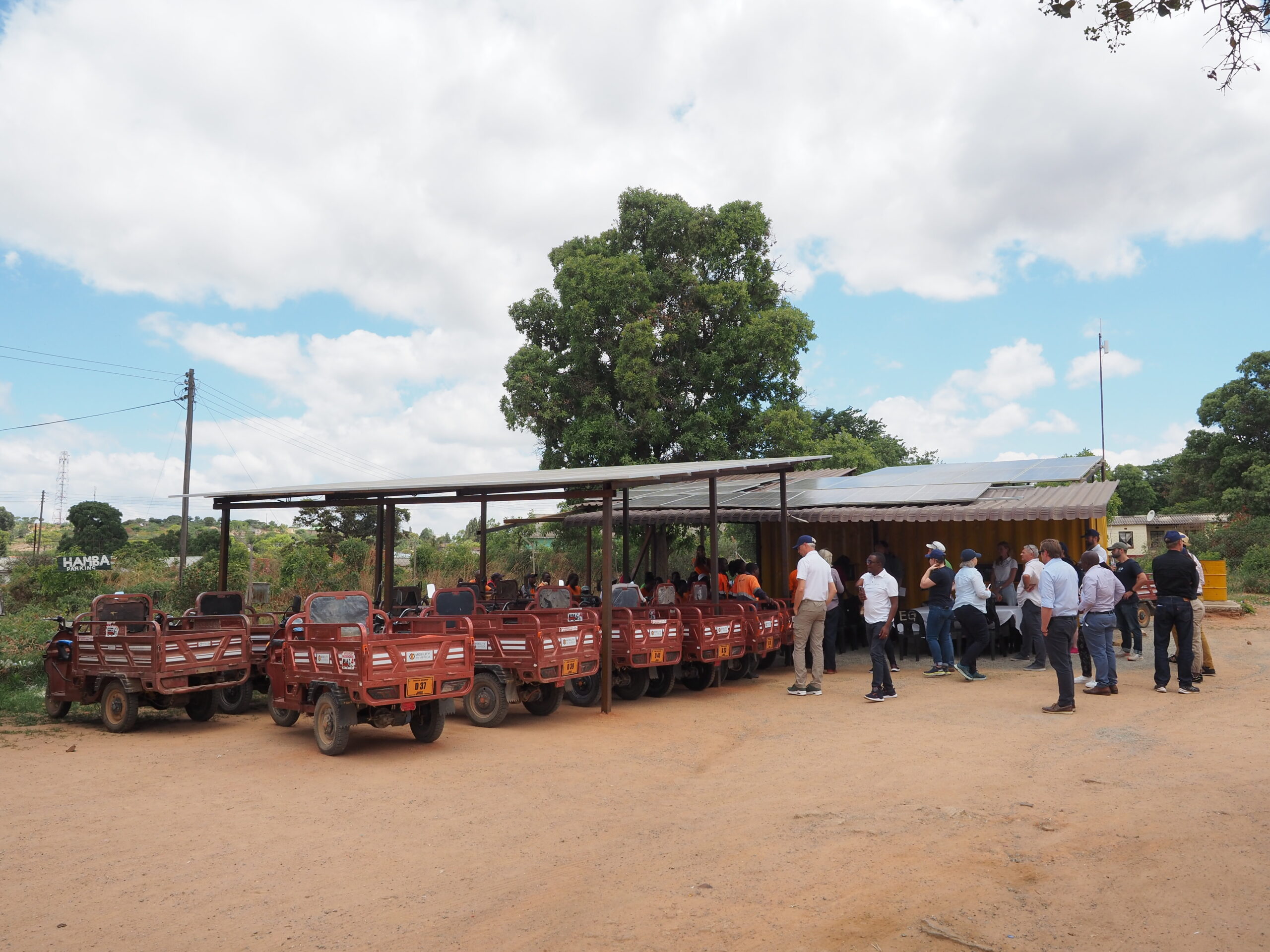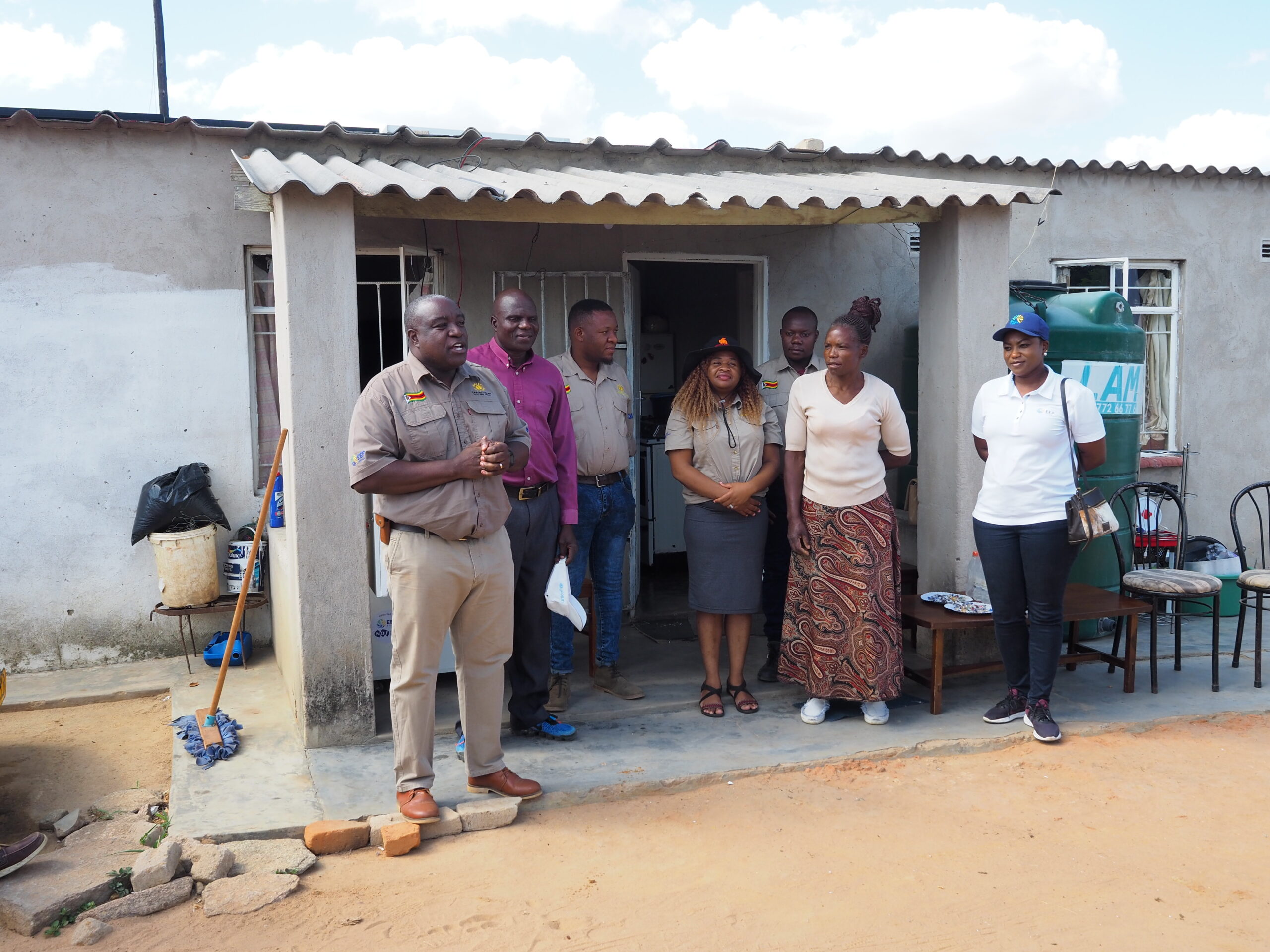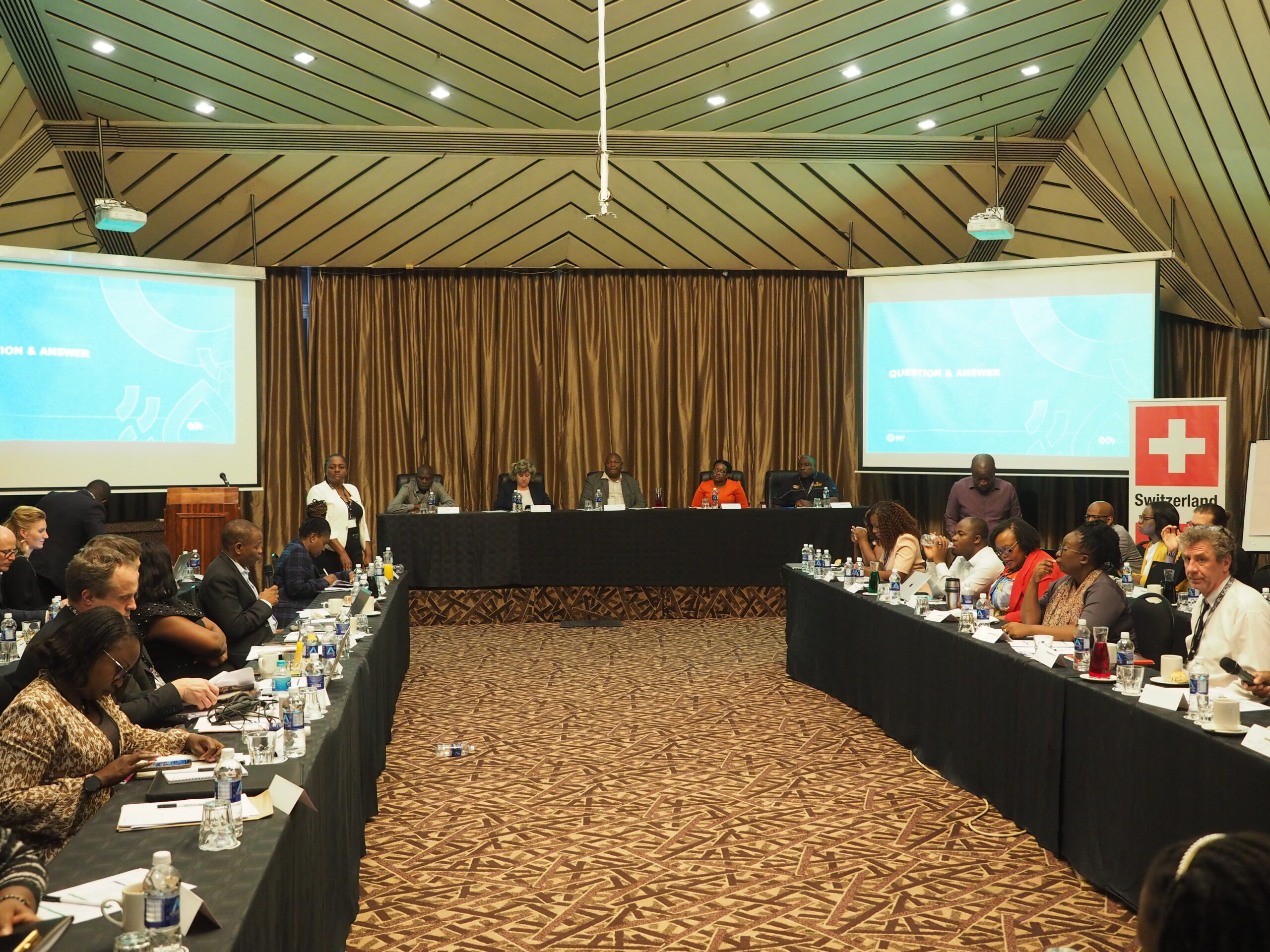
During the week of 13-17 November, EEP Africa donors gathered in Harare, Zimbabwe for the annual supervisory board meeting. The meeting was followed by site visits to two grantees to see the impact of EEP Africa funding on the ground. The week wrapped up with an event to hear from local stakeholders, including companies, clean energy financiers, and government officials to discuss the current market for clean energy solutions in Zimbabwe.
The donors of the EEP Africa Trust Fund meet annually to discuss the activities and results for the fund over the past year. There was much to discuss due to the 2023 Call for Proposals and subsequent Investment Committee which committed funding to 32 incoming grantees. In 2023 the fund grew to EUR 88.6 million thanks to Norway joining the fund, as well as renewed and additional commitments from donors Austria, Finland, and Iceland.
After the day-long meeting, the delegation got the chance to visit two grantees in Zimbabwe, Mobility for Africa and Clamore Solar.
Mobility for Africa (MfA) is a women-led start-up in Zimbabwe that is developing renewable community-based transport solutions for Africa. With their grant from EEP Africa, MfA scaled up their electric tricycle fleet, which they call “Hambas”, providing services for 256 smallholder farmers. This advances productive use of energy in rural communities and improves access to markets and income opportunities for women.

Mobility for Africa demonstrates the assembly of their Hamba tricycles
The first site was MfA’s main office and warehouse in Harare, where they assemble the Hambas and the batteries. MfA staff provided an overview of the assembly process and the business models they are deploying. The second site was MfA’s Domboshava charging centre, where about 31 drivers use the tricycles. Roughly half of the drivers offer logistics services, taxi or delivery, on a commission basis within the community, whereas the other half are poultry farmers who share the tricycles for easier access to the local market. For the poultry farmers a trip to buy food for their chickens would take up to 5-6 hours on foot but is reduced to just 30 minutes each way with the Hambas.

Mobility for Africa’s charging station in Domboshava
Clamore Solar is a Zimbabwean company that supplies solar-powered products and systems for domestic, productive, commercial and industrial use. With their grant from EEP Africa, Clamore aims to install 200 solar incubators by the end of 2024. Each solar incubator has capacity for 240 eggs, a 545w solar panel, and a 1800Wh lithium battery. The incubators in the field have been delivering an average of 75% hatch rates, thus increasing farmers’ output significantly. Farmers receive about 1 USD per chick.

Clamore Solar shows their product at the Mkandla farm.
The group visited Mrs. Mkandla at her farm, where she incubates the chicken eggs. She shared that she currently does not have any chickens laying the eggs, but rather buys the eggs from her neighbours to incubate since it is less burden. Those eggs which do not hatch are used for fertiliser for the variety of plants she grows on her farm. She has been raising poultry for around nine years and says she has built a reputation for herself with restaurants and hotels in Harare for providing high-quality chickens.

Mrs. Mkandla demonstrates her solar egg incubator
The week ended with a half-day event for the stakeholders in the clean energy sector within Zimbabwe, hosted by the Embassy of Switzerland in Harare in collaboration with EEP Africa. The main objective of the workshop was to bring together relevant government authorities, investors and local private companies in the energy sector to discuss learnings and implementation challenges faced by the local entrepreneurs delivering energy access in Zimbabwe.
The morning started with a round of introductions and opening remarks from the Embassy of Switzerland, the Ministry of Energy and Power Development, and EEP Africa. After the opening statements, the five EEP Africa Grantees in Zimbabwe presented on their successes, challenges, and opportunities for local companies in the clean energy sector. The presenters included: Tafi Chikwakwata from Clamore Solar, Precious Vuma from Powerlive, Isaiah Nyakusendwa from Celfre, Shantha Bloemen from Mobility for Africa, and William Ponela from Zonful Energy
The Grantees outlined some of the challenges they face when growing their companies in the local market, including supply chain interruptions (including Covid-19), exchange rate fluctuations, a lack of product regulation, lack of working capital, and customer’s ability to pay.
After the company presentations, the conversation continued to the investor side of the ecosystem. Remy Olsen from Open Capital set the scene by discussing the challenges investors face in securing the pipeline. He especially highlighted the concentration of the funding that is available, citing how 76% of financing in the off-grid solar sector has been deployed in only seven scale-up companies. After this framing was provided, representatives from Water and Energy for Food, UNDP, AECF, and SNV presented on their investments and activities in the sector, especially within Zimbabwe.
EEP Africa Portfolio Manager Chiedza Mazaiwana, based in Harare, closed the event by noting that the challenges faced in Zimabawe, “have created a really resilient group of entrepreneurs.” She also made a call to action for commercial investors to come on board and help to continue the growth of companies after they graduate from programs like EEP Africa.

EEP Africa grantees answer questions from the audience
The Energy and Environment Partnership Trust Fund (EEP Africa) is a clean energy financing facility hosted and managed by the Nordic Development Fund (NDF) with funding from Austria, Denmark, Finland, Iceland, NDF, Norway and Switzerland. EEP Africa provides risk tolerant early-stage grant financing for locally driven innovative clean energy projects and businesses in Southern and Eastern Africa. Since 2010, EEP Africa has committed more than EUR 60 million to over 270 pioneering projects, creating over 11,600 jobs, improving energy access for more than 5 million people, and avoiding 1.8 million tonnes of CO2e.


